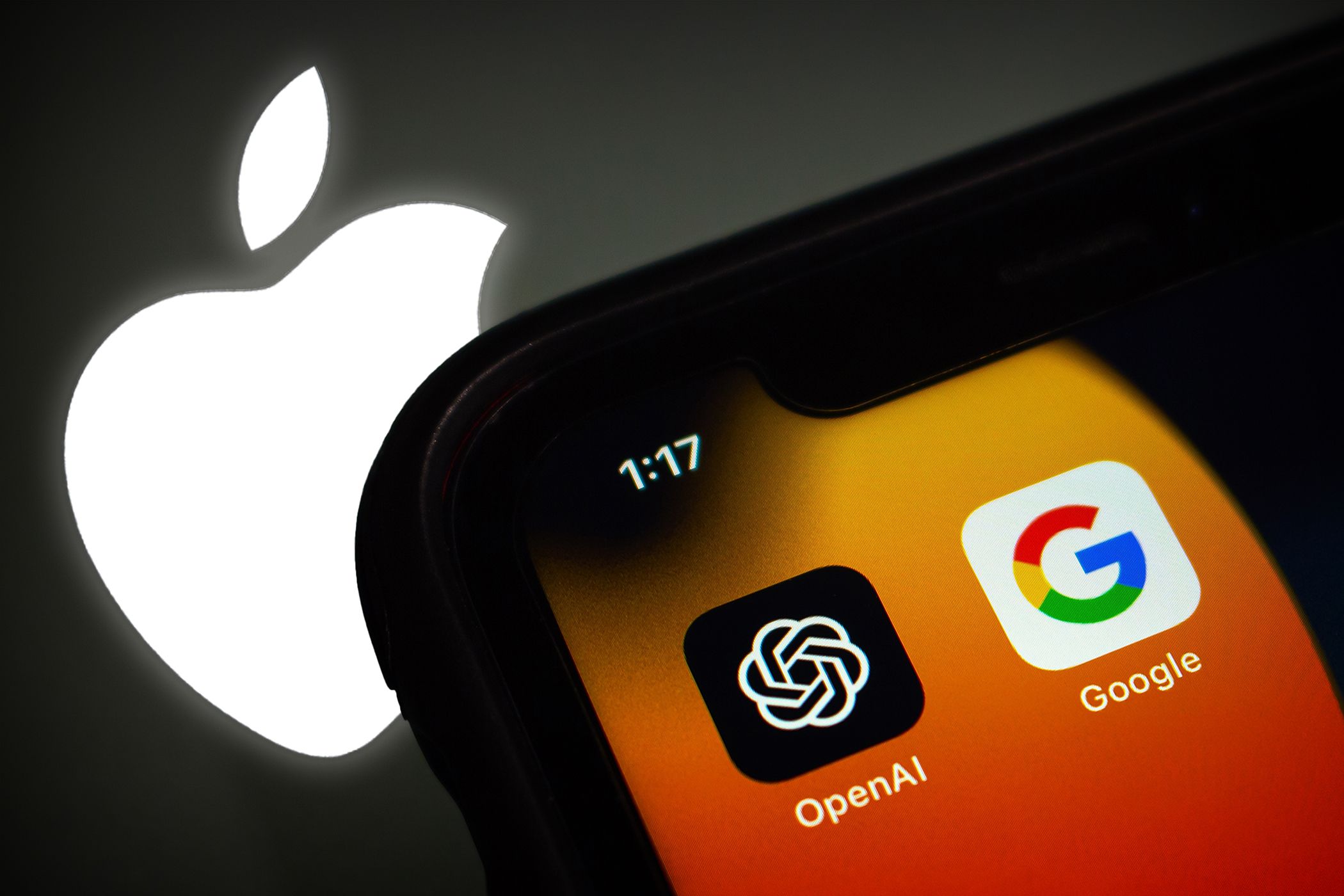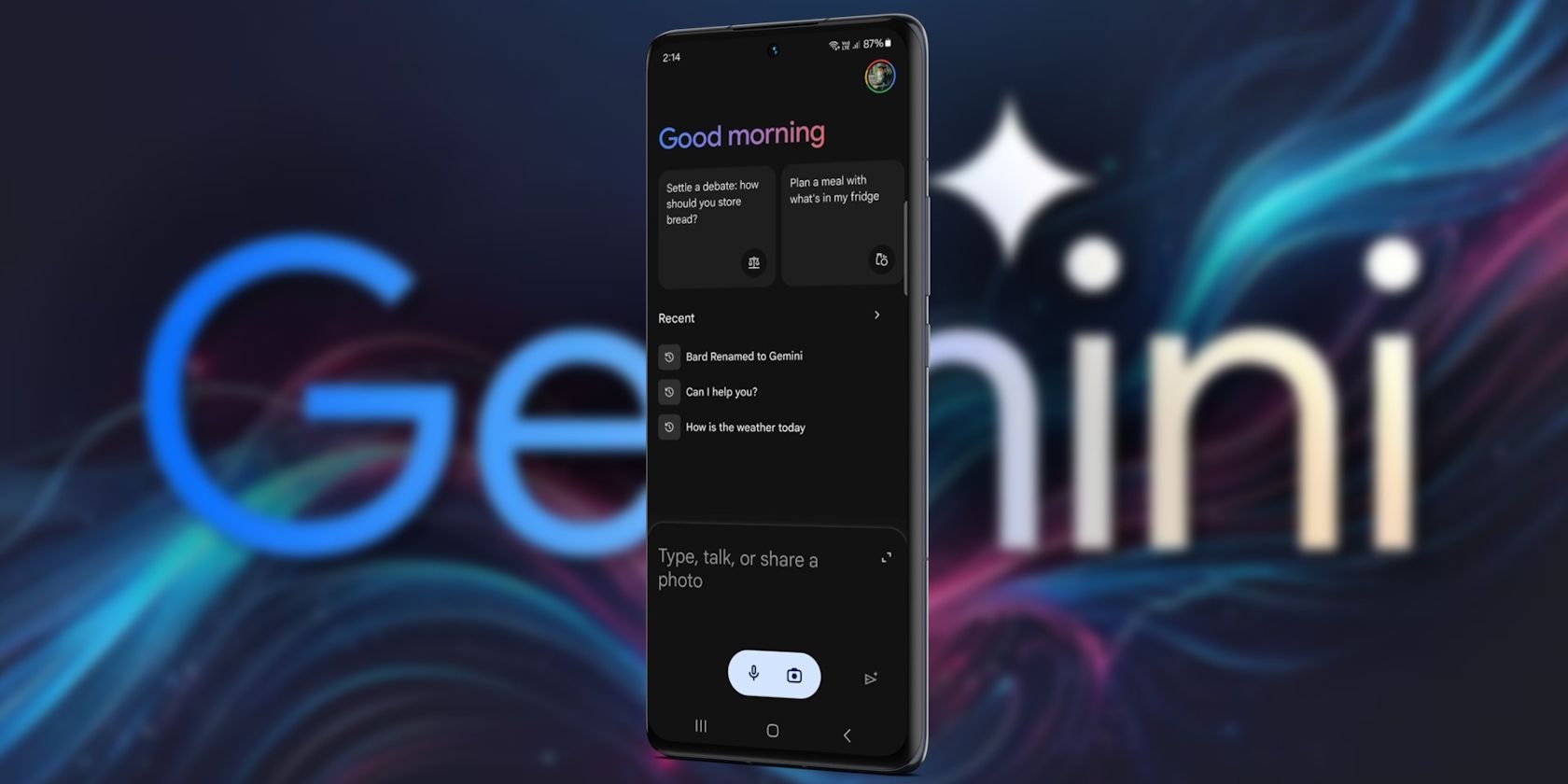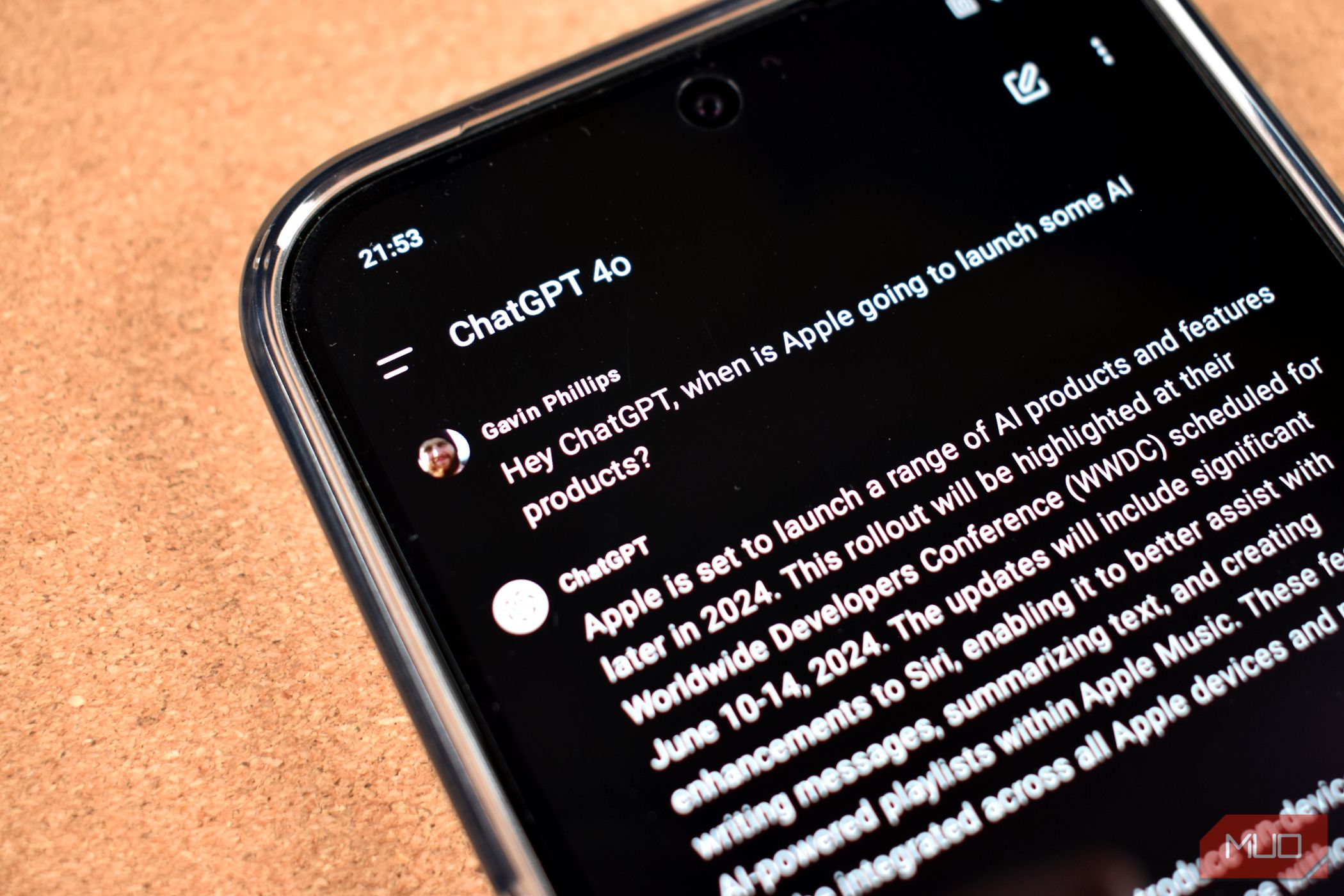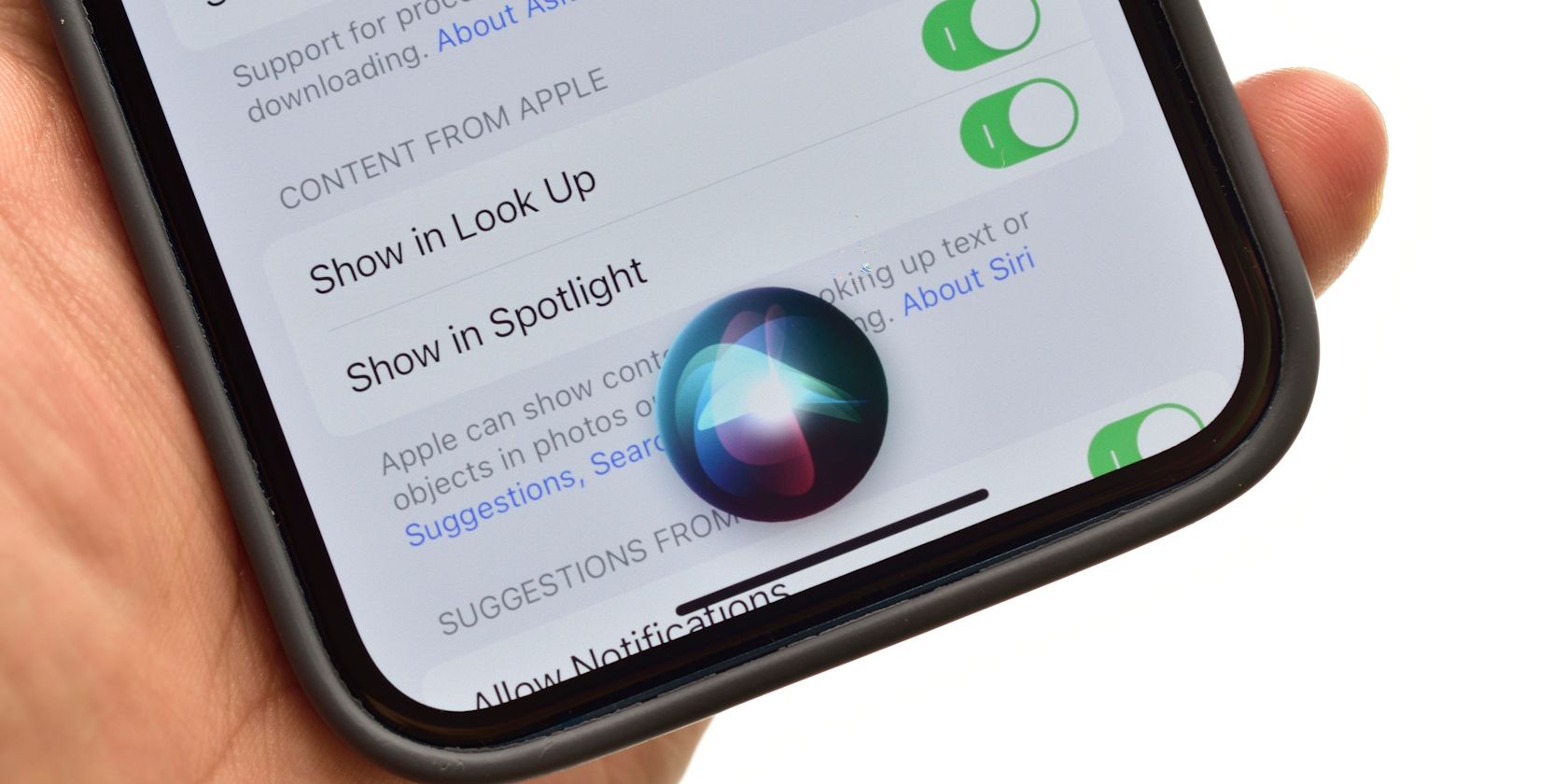Key Takeaways
- Apple is lagging behind in AI compared to rivals like Google and OpenAI due to limited data collection and development focus for Siri.
- Competition thrives in AI by taking risks and pushing frequent updates, which Apple needs to emulate to catch up.
- Apple’s upcoming AI features in iOS 18 and partnerships with OpenAI and Google indicate a shift in strategy towards AI.
Apple is known for its exceptionally well-made hardware and software, launching features years after its competitors to produce the best implementation possible. In fairness, it usually nails its approach—but the AI boom might be forcing Apple to reconsider its tactics.
With a partnership with OpenAI already announced, is Apple about to head into the AI world for good? And more to the point, how did Apple get left behind in AI in the first place?
Why Is Apple Lacking in AI?
Apple was one of the first companies to step into AI with the launch of Siri on iPhone in October 2011. However, despite being launched five years before Google Assistant and three years before Amazon Alexa, which launched in 2016 and 2014, respectively, Siri is outmatched by its rivals today.
It should be pointed out that it’s a much closer competition between Siri and Alexa than Google Assistant. When it comes to generative AI models like GPT 3.5/4 or Gemini, Siri doesn’t even stand a chance. You’ll rarely ever see instances of a company the size of Apple entering a product category years before the competition and getting left so far behind.
There are several reasons why Apple has fallen so far behind in the AI race. Most of them involve the company’s continued commitment to protecting user privacy.
Until this point, Siri has been limited by Apple’s approach of processing data locally and not collecting user data through its AI assistant. While that’s great for data security, as you can probably guess, it doesn’t do much to improve the AI side of things. AI models require enormous amounts of training data, and if you’re not collecting any while the competition is collecting as much as they can, you’re going to get left behind.
That’s not to say Apple hasn’t improved Siri or its AI features. The iPhone maker has been working to improve its AI-based products. It’s just that AI hasn’t ever been as big of a priority for Apple as it has become for Google or Microsoft. However, I expect that to change at Apple WWDC 2024 (June 10-14, 2024), where the company is expected to announce generative AI features in iOS 18.
Another reason why Apple hasn’t gone big on AI yet is the potential harm to its reputation that a bad or even failed AI model could bring. We’ve seen examples of Microsoft’s GPT-4 powered Bing Chat (now Copilot) going off the rails and Google’s Bard (now Gemini) spitting out wrong information. Apple likes to play it safe and wouldn’t want to dive headfirst into something that can harm its reputation or create distrust with customers.
That brings me to my next point—Apple is Apple. The company is notorious for releasing features years after the competition once it’s sure that implementing them won’t break anything else in its software. Sure, it makes for a seamless and stable software experience for its users, but it doesn’t do much to close the feature parity between Apple and its competitors.
What Is Apple’s AI Competition?
In contrast to Apple, competitors like Google, Microsoft, and OpenAI have all invested heavily in AI and taken risks, attempting to one-up each other. OpenAI is the most successful, navigating AI pitfalls with its GPT line of generative AI models and outpacing Microsoft and Google.
Microsoft tried to push AI with its own AI assistant, Cortana. However, the company ended up axing the assistant not long after. Its second attempt at AI came in the form of a partnership with OpenAI, after which the company is reportedly building an in-house AI model dubbed MAI1.
Google has also been in the AI race for a while now. The search giant has consistently improved Google Assistant in the eight years since its launch, making it easily one of the best voice assistants to use, even with generative AI models in the mix. With Gemini now integrated into Google Search and other generative AI features in Android, we’re about to see the next stage in Google’s AI plans.
A common thread between the three companies is that they focused on AI much more than Apple did, took risks (and sometimes had to bear the embarrassment), and ultimately developed a suite of AI-enabled products that serve their users well.
What Does Apple Need to Change to Catch Up?
As you can probably guess, Apple needs to change its approach to AI to catch up with rivals like OpenAI and Google, which are racing ahead.
New Strategy for Product Launches
Apple’s product launches have become reserved over the years. Whether it’s hardware or software, the iPhone maker doesn’t enter a market it doesn’t think is profitable.
Apple needs to change its strategy for product launches moving forward. The company needs to examine a broader set of technologies and expand its focus to where its competitors are looking. This includes AI, software features, tweaks, and hardware improvements the competition is working on.
We’re already starting to see this change in Apple’s partnerships. The Information reports that Apple has partnered with OpenAI to use the GPT AI models in iOS apps and features. Additionally, Apple is also in talks with Google over licensing Gemini, according to Mark Gurman’s Power On newsletter for Bloomberg. According to The Verge, Apple has also been talking to Claude developer Anthropic, which would be another significant AI partnership.
These new partnerships indicate a shift in Apple’s strategies and, hopefully, the start of a new, more open ecosystem. Regardless, Apple being Apple seems to be focusing its approach to AI on practicality. Whatever these partnerships will mean, Apple is looking at all options for AI features on the iPhone and beyond.
Bolder Attitude Towards Trying New Things
There’s a long list of rumored features floating around on the internet that Apple might announce for iOS 18 at the upcoming WWDC. These features, dubbed Project Greymatter, are a suite of AI tools Apple is looking to integrate into core apps like Safari, Notes, and Photos and even across the wider iOS system, allowing for features like enhanced notifications.
Other than AI-generated transcripts, summaries, and emojis, Apple is supposedly planning to announce a smart recap feature that works like Microsoft’s recently announced Recall feature. You’ll be able to summarise missed texts, calls, other notifications, web pages, notes, articles, and other media forms.
AI-based improvements will also come to the on-device Spotlight search. Last but not least, we might finally see a big update to Siri that puts the voice assistant in competition with Google’s offerings. These include a more natural-sounding voice (based on Apple’s in-house large language models) and better functionality on Apple Watches.
Apple is trying to balance integrating AI and protecting user privacy here, which is always good to see. Most of the AI-related data processing will happen locally. However, heavier workloads will be offloaded to the cloud, which Apple announced will run its M2 chips in its iPad and M4 chip launch event.
Of course, Apple is banking on its large user base to make these AI features a hit. From what we’ve seen in the past, that’s a pretty safe bet. Regardless, it’s nice to see Apple trying a bolder strategy and pushing multiple changes across core system components.
More Frequent Updates
One of the biggest reasons OpenAI and Google are leaders in the AI race is the frequent updates and feature drops they provide users every few months. As mentioned above, Apple is notorious for being very slow with major updates, ensuring a seamless user experience over everything else.
The company needs to change this mindset and provide more features and more frequent updates. That’s not to say it should start dropping new features every month, but major updates and features launching every quarter or so can massively help Apple catch up.
The generative AI features to be announced at WWDC in iOS 18, such as auto-generated emojis and transcribing voice memos, seem to be a start to this. If Apple can follow these up with frequent updates and additions, iPhone users won’t feel as left out as they do when it comes to AI features.
Developing an In-House AI Model
A partnership with OpenAI might be helpful initially, but one notable item missing is an AI-powered chatbot. OpenAI, Google, and Meta now offer an in-house chatbot that users can employ for several tasks. For Apple to kick itself off in AI, it also needs a horse in the race and quickly.
The Apple-OpenAI partnership should allow the company to accelerate its own AI model growth, but for a company with Apple’s talent, money, and resources, an in-house AI model (and eventually a chatbot) shouldn’t be too difficult, provided they make a serious effort.




